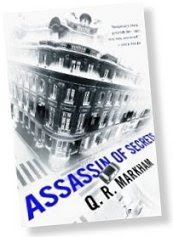The visit was an eye-opener and it took me back to my History classes in primary school. That was when I first heard about Tunku's Looking Back. Back then, I didn't even have a clue that I'd be working with books in the future, or that I'd have a chance to read that book - twice - as part of the editing process for the reissued edition, which rolled off the presses sometime last week.

I'd pick this over that other former prime minister's memoir
any day of the week, any month of the year
any day of the week, any month of the year
Most Malaysians don't need to be told Tunku's tale. Looking Back is a collection of pieces from the eponymous column in The Star in the 1970s. It covers the days leading to independence, the Emergency and the break with Singapore, and recollections of his childhood, during the Japanese occupation, his days studying law in London, and some commentary about issues of the day.
The pages radiate candour and familial warmth, like how a favourite granddad would sit down and tell you stories of how he came to this land on a boat, put a house together without nails and killed a man with his thumb. ...Not that Tunku did all those things.
What he did do was just as impressive. He faced death in the form of several Japanese officers. He stood up against the British and with them, hammered out a deal for our independence. He faced up to the likes of Chin Peng, Macapagal and Sukarno. He owned horses and raced a couple. He can cook a decent English roast beef. And he endured the "lusty" snores of one TH Tan.
The best gems remain the slice-of-life bits in his collection of articles. He managed to convert the dhoti-wearing Tun VT Sambanthan to European suits. He missed the chance to serve Prince Phillip durians and curry. And there's Tun Tan Cheng Lock's holey cigars. His reminiscences of his days in "Kampung Tunku" gently toasts the cockles of your heart.
However, it could be said that those most dear to you are also the most annoying to you. Tunku's views on "the Communists" in particular were irksome. Like they were responsible for the Malaysia-Singapore partition, the Yom Kippur War, and Arsenal thumping Malaysia 4-0 at Bukit Jalil. But Tunku did live through a 12-year Communist insurgency; the gravest "emergency" us Gen-Xers' had to face was the 1998 water cut and the annual haze.
And he did have... strange ideas about Communism and Communist countries. His take on Communist China back then, for instance, kind of resembles North Korea today.
Nor did he didn't seem to understand why Prince Norodhom Sihanouk (now former king) of Cambodia accommodated his country's Communists. He seemed to wonder why someone would support an ideology that imposed a "regimented" way of life on its people. After all, Cambodia, like Malaysia, has more than enough for everybody, as this passage suggests:
"Nobody need starve in [Malaysia], as one can just stretch out one’s hand and pick one’s own food. There are fish in every river, food in abundance on the land. Even the forests yield animals and vegetables that can be eaten.
I don't know how much of that was true then, but I'm sure that isn't the case anymore. For one, I certainly would not eat anything I can fish out of the Klang River.
The lands are no longer as bountiful or as pristine. Outside forces loom larger, more menacing and challenging than before. Upheavals in one country or region generate even bigger ripples that can go around the world.
Tunku's happy era is long over.
But every time I think back on how empty and forlorn the Memorial was when I visited, like the abandoned home of a long-deceased relative, I still feel that nudge of regret from realising that we and future generations can only get to know him through the artefacts and the words he left behind.
That's never going to be enough.
Looking Back: Monday Musings and Memories is reissued and jointly published by MPH Group Publishing and Star Publications. Will soon be available at all major bookstores.
Looking Back
Monday Musings and MemoriesTunku Abdul Rahman Putra al-Haj
MPH Group Publishing and Star Publishing
411 pages
Non-fiction
ISBN: 978-967-5997-57-0
Buy from MPHOnline.com
Categories:
New Publications




